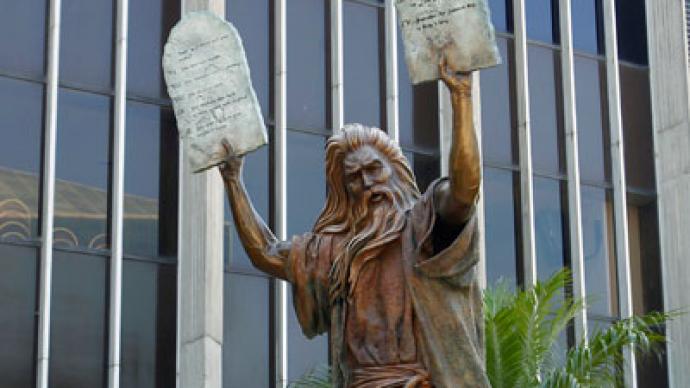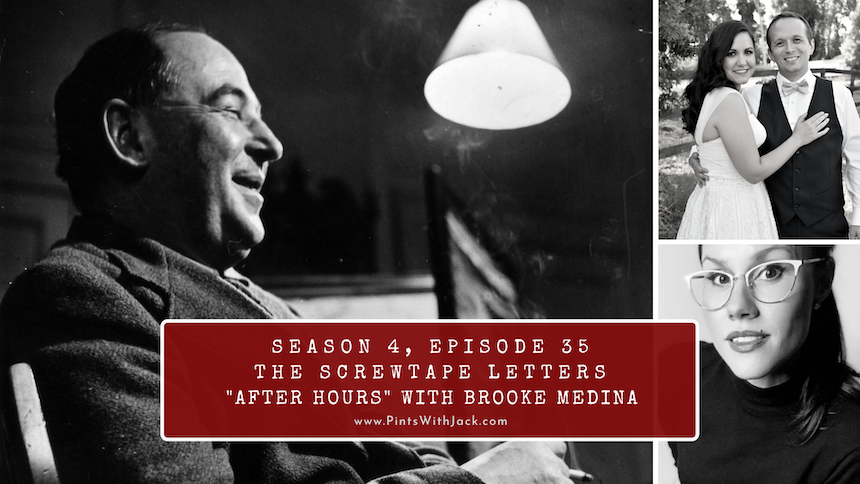The Great Divorce: Chapter 7


Summary
Made uncomfortable by the Water-Giant, Lewis leaves and continues to make his way downstream again. He meets a “tall…a lean hard-bitten [ghost] with grev hair and a gruff, but not uneducated voice” leaning against a tree.
The ghost asks Lewis if he’s going back and Lewis says he’s unsure. The ghost explains that he is since he’s “seen about all there is to see.” He just came up to “have a look around”. He did the same on earth: “Pekin… Niagara Falls, the Pyramids, Salt Lake City, the Taj Mahal” and didn’t think much of any of them, claiming that they were “All run by the same people…a World Combine”.
He’s exceptionally disappointed with Hell, saying “They lead you to expect red fire and devils and all sorts of interesting people sizzling on grids… but when you get there its’s just like any other town”.
The Hard-Bitten Ghost claims that there’s no possibility of staying in Heaven since “You can’t eat the fruit and you can’t drink the water and it takes you all your time to walk on the grass… All that idea of staying is only an advertisement stunt.”
After complaining about how uncomfortable Heaven is, Lewis said that “There seems to be some idea that if one stays here one would get…acclimatised.” The ghost rejects this, saying he’d been told that lie his entire life. In the nursery he was told that if he were good, he’d be happy, at school they said Latin would get easier, he was told marriage would would “settle down”, during the World Wars that peace would eventually come.
Our ghost is a conspiracy theorist. He goes on to claim that, just in the same way “[Mummie] and Father were the same firm”, that Heaven and Hell are run by the same people and it’s an elaborate joke. He argues that Heaven and Hell can’t be at war, otherwise Heaven “would attack and sweep the Town out of existence”.
After complaining that there’s nothing to do, either in Heaven or Hell, Lewis asks the ghost would he would like to do if he had a choice. The ghost rejects the entire idea, saying “It’s up to the Management to find something that doesn’t bore us, isn’t it? It’s their job. Why should we do it for them?” He goes on to say that the same thing was wrong with “the parsons and moralists” who “keep on asking us to alter ourselves. But if the people who run the show are so clever and so powerful, why don’t they find something to suit their public?” Regarding the idea of becoming “solider”, the Hard-Bitten Ghost cynically asks Lewis what he would think of a hotel which told you that you’d grow to enjoy eating bad eggs eventually!
The ghost prepares to leave and asks Lewis if he’ll join him. Lewis cheekily responds that
“There doesn’t seem to be much point in going anywhere on your showing”. When he comments that at least it’s not raining here, the Hard-Bitten Ghost points out at that it’s bound to soon and, when it does rain, the raindrops “will make a hole in you, like a machine-gun bullet”. Convinced that “they” won’t catch him that way, our ghost leaves.
Questions
Q1. What do you make of the Hard-Bitten Ghost?
Q2. Why do you think the ghost was so unimpressed with everything on earth?
Q3. Why is the ghost so unimpressed with Hell?
Q4. Why is the ghost so unimpressed with Heaven?
Q5. Why does he reject the idea that the ghosts will become solider over time?
Q6. Why does the ghost not think Heaven and Hell are at war? Why does he think they are colluding?
Q7. Why does the ghost not suggest anything he’d like to do?




 If any of you have watched or listened to debates on atheism, you will have, no doubt, come across William Lane Craig. He is an analytic philosopher, Christian apologist and the driving force behind
If any of you have watched or listened to debates on atheism, you will have, no doubt, come across William Lane Craig. He is an analytic philosopher, Christian apologist and the driving force behind 
